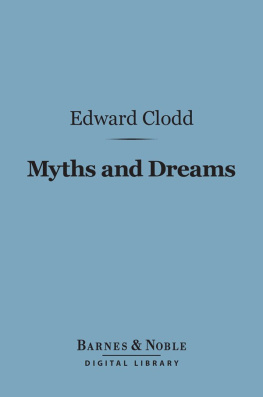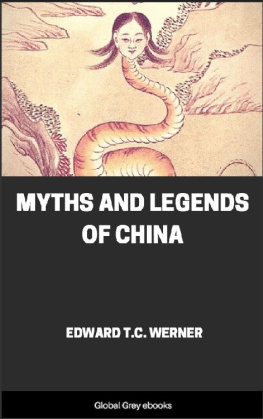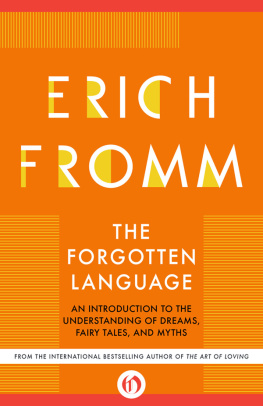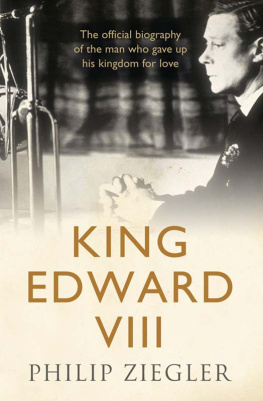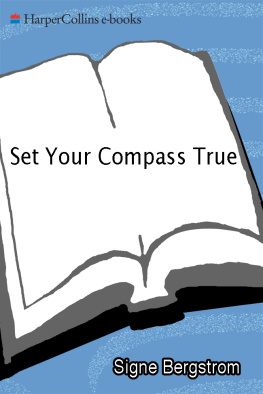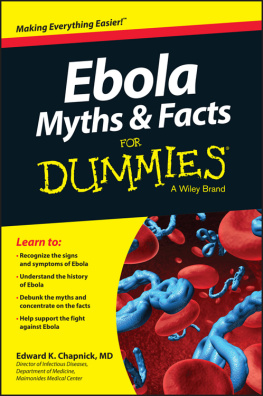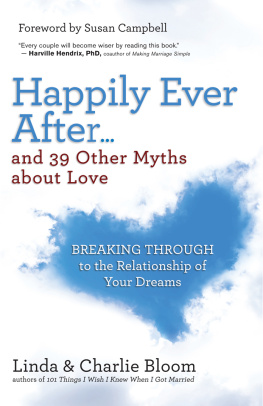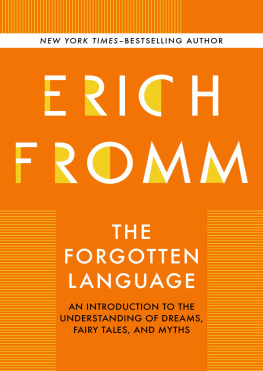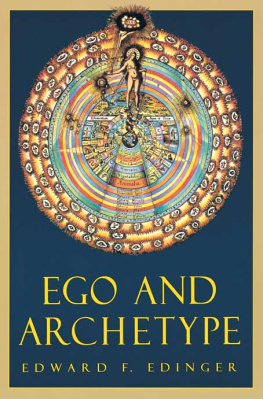Edward Clodd - Myths and Dreams
Here you can read online Edward Clodd - Myths and Dreams full text of the book (entire story) in english for free. Download pdf and epub, get meaning, cover and reviews about this ebook. year: 2022, publisher: BarnesNoble, genre: Detective and thriller. Description of the work, (preface) as well as reviews are available. Best literature library LitArk.com created for fans of good reading and offers a wide selection of genres:
Romance novel
Science fiction
Adventure
Detective
Science
History
Home and family
Prose
Art
Politics
Computer
Non-fiction
Religion
Business
Children
Humor
Choose a favorite category and find really read worthwhile books. Enjoy immersion in the world of imagination, feel the emotions of the characters or learn something new for yourself, make an fascinating discovery.
- Book:Myths and Dreams
- Author:
- Publisher:BarnesNoble
- Genre:
- Year:2022
- Rating:3 / 5
- Favourites:Add to favourites
- Your mark:
- 60
- 1
- 2
- 3
- 4
- 5
Myths and Dreams: summary, description and annotation
We offer to read an annotation, description, summary or preface (depends on what the author of the book "Myths and Dreams" wrote himself). If you haven't found the necessary information about the book — write in the comments, we will try to find it.
Myths and Dreams — read online for free the complete book (whole text) full work
Below is the text of the book, divided by pages. System saving the place of the last page read, allows you to conveniently read the book "Myths and Dreams" online for free, without having to search again every time where you left off. Put a bookmark, and you can go to the page where you finished reading at any time.
Font size:
Interval:
Bookmark:
EDWARD CLODD

This 2012 edition published by Barnes & Noble, Inc.
All rights reserved. No part of this publication may be reproduced, stored in a retrieval system, or transmitted, in any form or by any means, electronic, mechanical, photocopying, recording, or otherwise, without prior written permission from the publisher.
Barnes & Noble, Inc.
122 Fifth Avenue
New York, NY 10011
ISBN: 978-1-4114-6505-3
PREFACE
T HE object of this book is to present in compendious form the evidence which myths and dreams supply as to primitive man's interpretation of his own nature and of the external world, and more especially to indicate how such evidence carries within itself the history of the origin and growth of beliefs in the supernatural.
The examples are selected chiefly from barbaric races, as furnishing the nearest correspondences to the working of the mind in what may be called its "eocene" stage, but examples are also cited from civilised races, as witnessing to that continuity of ideas which is obscured by familiarity or ignored by prejudice.
Had more illustrations been drawn from sources alike prolific, the evidence would have been swollen to undue dimensions without increasing its significance; as it is, repetition has been found needful here and there, under the difficulty of entirely detaching the arguments advanced in the two parts of this work.
Man's development, physical and psychical, has been fully treated by Mr. Herbert Spencer, Dr. Tylor, and other authorities, to whom students of the subject are permanent debtors, but that subject is so many-sided, so far-reaching, whether in retrospect or prospect, that its subdivision is of advantage so long as we do not permit our sense of interrelation to be dulled thereby.
My own line of argument will be found to run for the most part parallel with that of the above-named writers; there are divergences along the route, but we reach a common terminus.
The footnotes indicate the principal works which have been consulted in preparing this book, but I desire to express my special thanks to Mr. Andrew Lang for his kindness in reading the proofs, and for suggestions which, in the main, I have been glad to adopt.
E. C.
ROSEMONT, TUFNELL PARK,
LONDON, March 1885.
MYTH:
ITS BIRTH AND GROWTH
I
ITS PRIMITIVE MEANING
I T is barely thirty years ago since the world was startled by the publication of Buckle's History of Civilisation, with its theory that human actions are the effect of causes as fixed and regular as those which operate in the universe; climate, soil, food, and scenery being the chief conditions determining progress.
That book was a tour de force, not a lasting contribution to the question of man's mental development. The publication of Darwin's epoch-making Origin of Species showed wherein it fell short; how the importance of the above-named causes was exaggerated and the existence of equally potent causes overlooked. Buckle probably had not read Herbert Spencer's Social Statics, and he knew nothing of the profound revolution in silent preparation in the quiet of Darwin's home; otherwise, his book must have been rewritten. This would have averted the oblivion from which not even its charm of style can rescue it. Its brilliant but defective theories are obscured in the fuller light of that doctrine of descent with modifications by which we learn that external circumstances do not alone account for the widely divergent types of men, so that a superior race, in supplanting an inferior one, will change the face and destiny of a country, "making the solitary place to be glad, and the desert to rejoice and blossom as the rose." Darwin has given us the clue to those subtle and still obscure causes which bring about, stage by stage, the unseen adaptations to requirements varying a type and securing its survival, and which have resulted in the evolution of the manifold species of living things. The notion of a constant relation between man and his surroundings is therefore untenable.
But incomplete as is Buckle's theory, and all-embracing as is Darwin's, so far as organic life is concerned, the larger issue is raised by both, and for most men whose judgment is worth anything it is settled. Either man is a part of nature or he is not. If he is not, there is an end of the matter, since the materials lie beyond human grasp, and cannot be examined and placed in order for comparative study. Let Christian, Brahman, Bushman, and South Sea Islander each hold fast his "form of sound words" about man's origin. One is as good as another where all are irrational and beyond proof. But if he is, then the inquiry concerning him may not stop at the anatomy of his body and the assignment of his place in the succession of life on the globe. His relation, materially, to the simplest, shapeless specks of living matter; structurally, to the highest and more complex organisms, is demonstrated; the natural history of him is clear. This, however, is physical, and for us the larger question is psychical. The theory of evolution must embrace the genesis and development of mind, and therefore of ideas, beliefs, and speculations about things seen and unseen.
In the correction of our old definitions a wider meaning must be given to the word myth than that commonly found in the dictionaries. Opening any of these at random we find myth explained as fable, as something designedly fictitious, whether for amusement only, or to point a moral. The larger meaning which it holds today includes much more than thisto wit, the whole area of intellectual products which lie beyond the historic horizon and overlap it, effacing on nearer view the lines of separation. For the myth, as fable only, has no place for the crude fancies and grotesque imaginings of barbarous races of the present day, and of races at low levels of culture in the remote past. And so long as it was looked upon as the vagrant of fancy, with no serious meaning at the heart of it, and as corresponding to no yearning of man after the truth of things, sober treatment of it was impossible. But now that myth, with its prolific offspring, legend and tradition, is seen to be a necessary travailing through which the mind of man passed in its slow progress towards certitude, the study and comparison of its manifold, yet, at the centre, allied forms, and of the conditions out of which they arose, takes rank among the serious inquiries of our time.
Not that the inquiry is a new one. The limits of this book forbid detailed references to the successive stages of that inquiryin other words, to the pre-Christian, patristic, and pseudo-scientific theories of myth which remained unchallenged, or varied only in non-essential features, till the rise of comparative mythology. But apology for such omission here is the less needful, since the list of ancient and modern vagaries would have the monotony of a catalogue. However unlike on the surface, they are fundamentally the same, being the products of non-critical ages, and one and all vitiated by assumptions concerning gods and men which are to us as "old wives' fables."
In short, between these empirical theories and the scientific method of inquiry into the meaning of myth there can be no relation. Because, for the assigning of its due place in the order of man's mental and spiritual development to myth, there is needed that knowledge concerning his origin, concerning the conditions out of which he has emerged, and concerning the mythologies of lower races and their survival in unsuspected forms in the higher races, which was not only beyond reach, but also beyond conception, until this century.
Except, therefore, as curiosities of literature, we may dismiss the Lemprire of our school-days, and with him "Causabon"-Bryant and his symbolism of the ark and traces of the Flood in everything. Their keys, Arkite and Ophite, fit no lock, and with them we must, in all respect be it added, dismiss Mr. Gladstone, with his visions of the Messiah in Apollo, and of the Logos in Athn.
Font size:
Interval:
Bookmark:
Similar books «Myths and Dreams»
Look at similar books to Myths and Dreams. We have selected literature similar in name and meaning in the hope of providing readers with more options to find new, interesting, not yet read works.
Discussion, reviews of the book Myths and Dreams and just readers' own opinions. Leave your comments, write what you think about the work, its meaning or the main characters. Specify what exactly you liked and what you didn't like, and why you think so.

